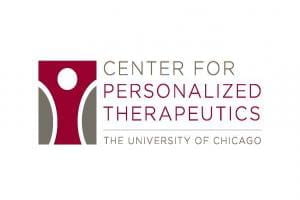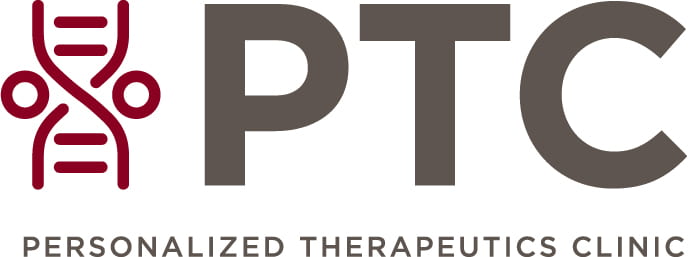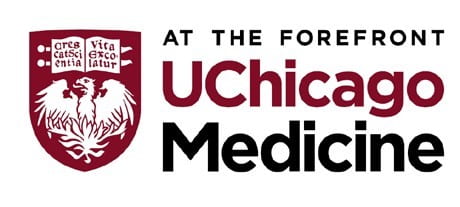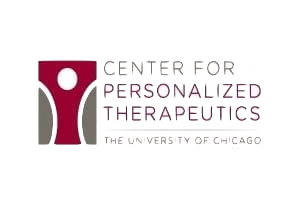SAVE THE DATE: March 4th to March 5th, 2026. Washington DC, Georgetown Law
Novel Solutions to Address the Rising Cost of Oncology Drugs: Targeting the Demand Side
Keynote Speaker: Monica Bertagnolli, M.D.
The university of chicago
Center for Personalized Therapeutics
By making pharmacogenomic information prompt, accessible, and understandable for physicians, The Center for Personalized Therapeutics (CPT) leads the way in translating genomic discovery to improve care for patients.
Projects
CPT conducts clinical trials in diverse medical fields, including perioperative, oncology, in-patient, out-patient, and beyond.
Research
CPT leads exceptional research on translational genomic discoveries and pharmocogenomics.
Training + Career
CPT offers career and research opportunities for undergraduate, graduate, and post-doctoral trainees.
Collaboration
CPT partners with other departments and specialties to advance our understanding of the human genome.
Explore our Program
In 2000 the first draft sequence of the human genome was released, and widespread use of techniques to implement and translate such genomic knowledge was slow to be adopted by the medical community. In 2009, the future leadership of the CPT felt that there was a critical mass of information regarding the association of individual genetic variability with drug-related adverse event and response outcomes and therefore established the Center.

Dedication to Precision Health Care
In 2000 the first draft sequence of the human genome was released, and widespread use of techniques to implement and translate such genomic knowledge was slow to be adopted by the medical community. In 2009, the future leadership of the CPT felt that there was a critical mass of information regarding the association of individual genetic variability with drug-related adverse event and response outcomes and therefore established the Center.
The Center embarked on its first project in 2011, the 1200 Patients Project, which uses a preemptive ‘medical system model’ for personalized care that makes relevant pharmacogenomic information instantaneously accessible at the time of prescribing to reduce the use of inappropriate and high-risk medications in patients for whom pharmacogenomic results are known, thereby decreasing adverse events and non-responsive rates.


Leader in Personalized Therapeutics
We are a leading center in the field of personalized therapeutics, aiming to translate genomic discovery into results that will improve care for patients. Our center has three completed and four ongoing projects. With 529 providers enrolled in our studies, CPT strives to make pharmacogenomic information available across multiple specialties.
Total providers enrolled in the US
Providers enrolled in the ImPreSS Trial
Providers enrolled in the ACCOuNT Project
Projects
“Excitement as we chart a course for the future”
For 50 years, the University of Chicago Medicine Comprehensive Cancer Center has led the way in transforming cancer care through groundbreaking research and innovation. In the latest issue of Medicine on the Midway, explore how our legacy—driven by medical doctors like Dr. Mark Ratain—continues to shape personalized therapies and improve patient lives.
Learn more about our history of excellence, including Dr. Mark Ratain’s discovery of how genetic variants affect patient’s response to cancer drugs, and our exciting plans for the future.

“Dose Matters” with Dr. Mark Ratain
Our History on Medicine on the Midway
Collaborations Towards Optimized Healthcare
The Center is uniquely positioned to further enhance collaborative clinical, research and training efforts in partnership with other departments and units of the university.
Collaboration
The CPT interfaces and collaborates with a number of existing units including: the Departments of Medicine (Sections of Genetic Medicine, Hematology/Oncology, General Internal Medicine, and Hospital Medicine), Pathology, Human Genetics, and Health Studies; the Committee on Clinical Pharmacology and Pharmacogenomics; the Comprehensive Cancer Center; the Center for Health and the Social Sciences; the MacClean Center for Clinical Medical Ethics; and the Institute for Genomics and Systems Biology. These interactions are vital to the CPT’s mission and ultimate goals.
Translating Genomic Discovery to Therapeutics
Our Goal
One of the key goals of the Center is to develop systems for efficient collection, storage and clinical application of genetic data and to train physicians in the use of personalized genetic information as tools in patient care which can help identify the patients most likely to respond to, or be harmed by, specific therapies.
Our Approach
Current CPT reserach focuses on the evaluation of pharmacogenomics markers in the context of clinical trials at all phases of drug development. In addition, researchers are working in the area of new drug development by using genomic research findings to identify new targets, leading to the development of antibodies, peptide vaccines, and small molecular compounds.
In the near future, the Center plans to expand the availability of pre-emptive clinical testing for use in additional patient populations at a variety of institutions around the counry. The ultimate goal of the Center is to develop innovative, personalized and effective therapies for all patients.

Personalized Therapeutics Clinic
The purpose of the Personalized Therapeutics Clinic is to provide expert consultative input from a Clinical Pharmacologist regarding medication issues. Examples include complex issues concerning pharmacogenomics, polypharmacy, drug-drug interactions, drug-food interactions, drug-herbal interactions, and dosing in the context of organ dysfunction.
We are recruiting for a clinical study, “Evaluating the Effectiveness of a Personalized Therapeutics Clinic on Drug-Drug and Drug-Gene Interactions,” or the “Personalized Therapeutics Study” for short, which combines the use of pharmacogenomics with the establishment of the novel Personalized Therapeutics Clinic at UChicago Medicine. Participants in this study ultimately have the opportunity to undergo genetic testing and have subsequent results analyzed to determine potentially-adverse drug-drug interactions (DDIs) and drug-gene interactions (DGIs).
For those participants whose DNA is genetically tested, they also have the opportunity to attend a virtual appointment(s) with a healthcare provider from the PTC who will discuss with participants the pharmacogenomic results and their implications.

Rethinking Cancer Drug Costs: A Demand-Side Approach
Be part of the movement to make cancer care sustainable. Join keynote speaker Monica Bertagnolli for Novel Solutions to Address the Rising Cost of Oncology Drugs—a discussion on driving change from the demand side.
March 3rd-4th, 2026
Novel Solutions to Address the Rising Cost of Oncology Drugs: Targeting the Demand Side
Keynote Speaker: Monica Bertagnolli, M.D. Oncologist, Former Director of the National Institutes of Health (NIH) of the United States
Rising cancer drug costs demand not just supply-side fixes but smarter use. Focusing on the demand side—through evidence-based prescribing, value-based care, and precision oncology—can curb waste, improve outcomes, and make lifesaving therapies more sustainable.
Join us on this remarkable journey as we continue to revolutionize personalized therapeutics.
Phone
(773)-753-1200
Open Hours
Mon – Fri: 9:00 AM – 4PM
Address
5841 South Maryland Avenue, MC 2115


